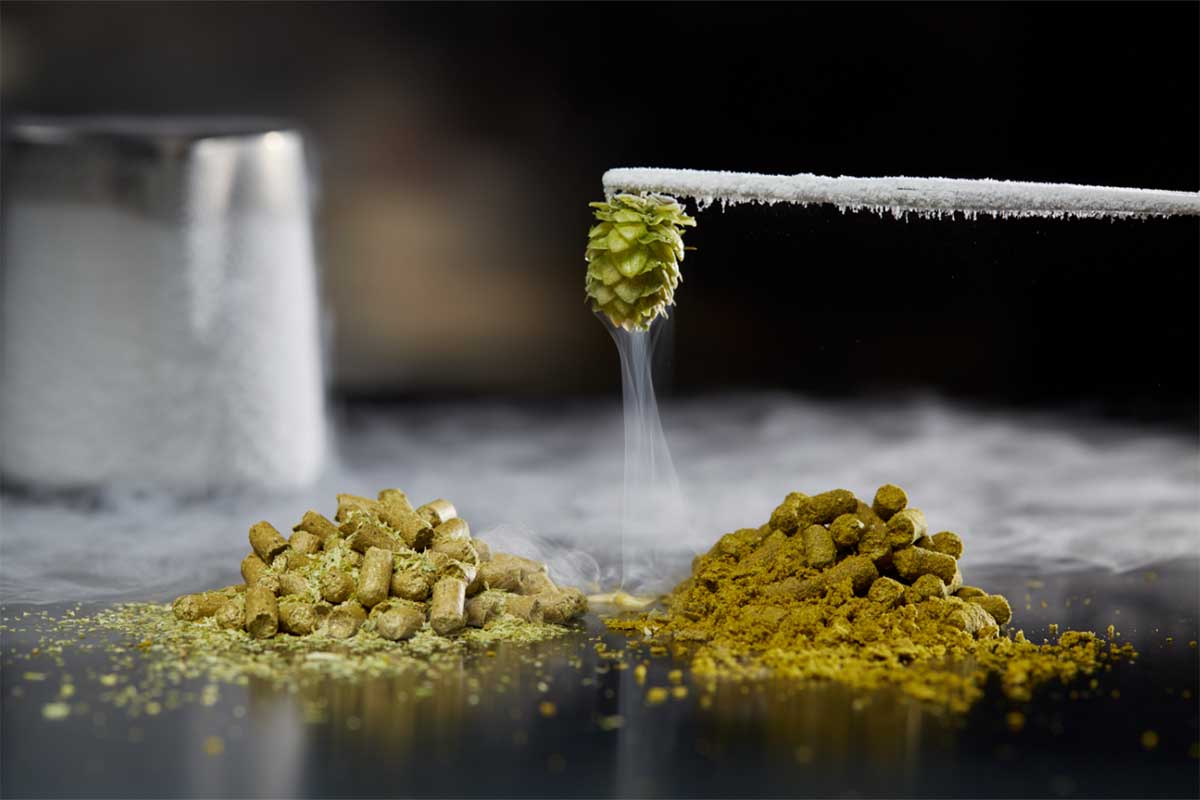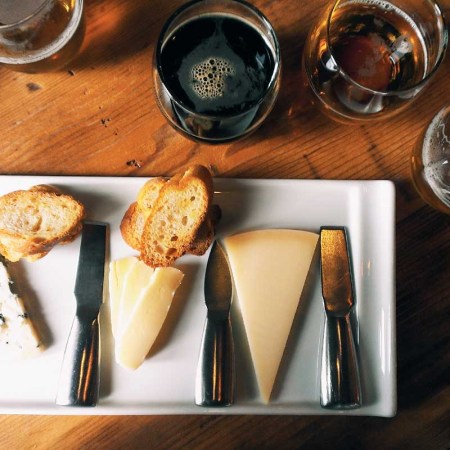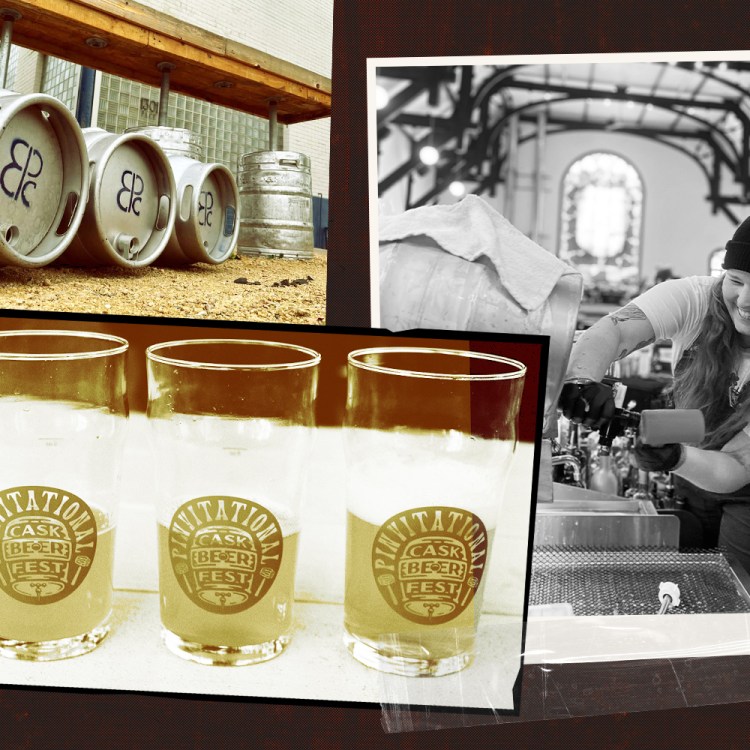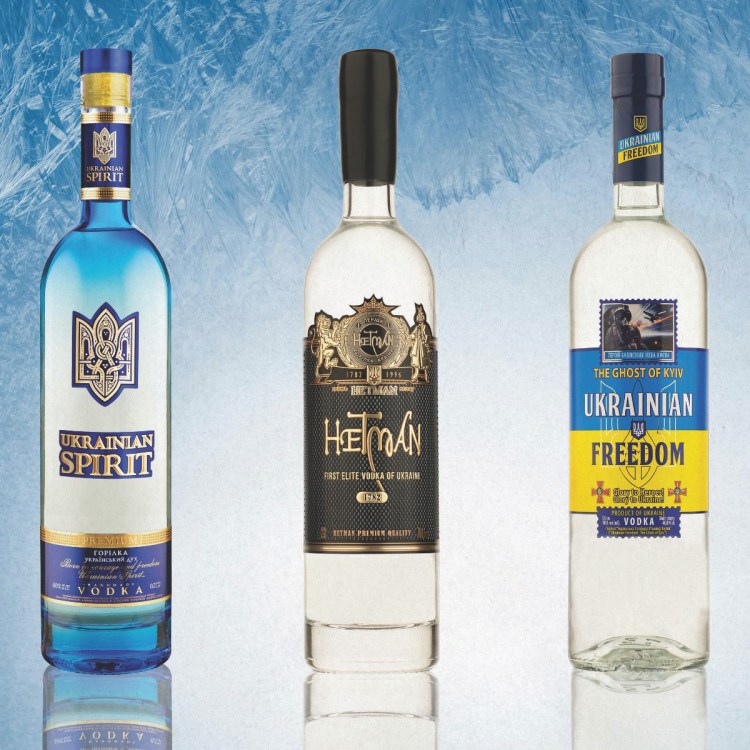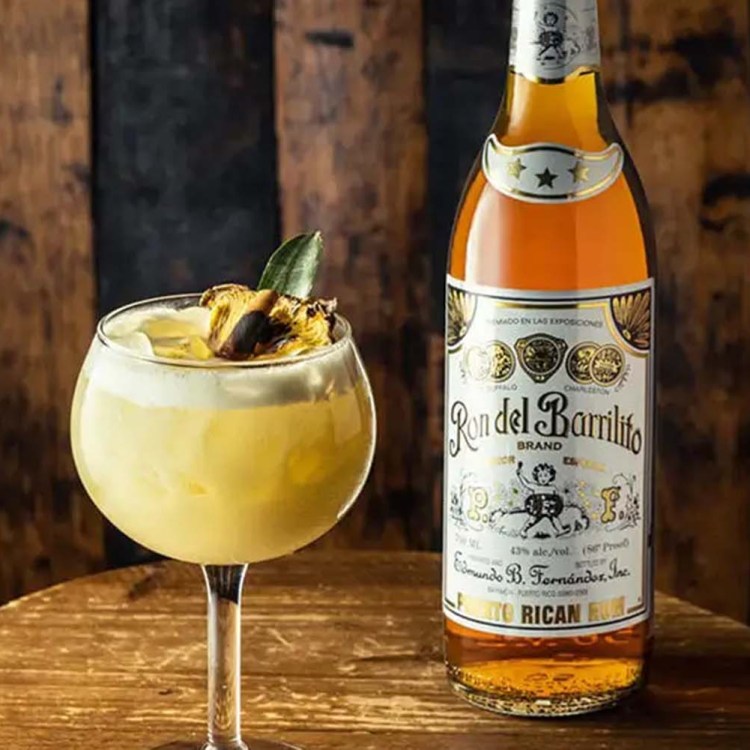Making beer is an intricate process. And thanks to new brewing innovations it’s only getting more complicated.
As the number of craft breweries in America balloons, the more advanced and complicated the techniques needed to capture the public’s attention become. That’s how you end up with cryptic terms like “cryo” and “thiol” on the label of your IPA with nary an explanation as to what it means to the person about to pop the tab. At the same time, there are game-changing innovations happening inside the brewhouse that never make their way to the average beer drinker.
But brewing’s bleeding edge doesn’t need to be inaccessible. Understanding the science and technology that’s pushing beer forward can give you a deeper appreciation for the liquid sitting in your glass. In this primer, we break down, in simple terms, five of the most exciting innovations in craft beer today.
Cryo Hops
Whole hop cones are covered in a fragrant green powder called lupulin. This powder is rich in the oils and acids that make beers (especially IPAs) bitter, aromatic or juicy. Whole hops may also impart unwanted vegetal flavors, so brewers tend to use pelletized hops that concentrate the lupulin.
Washington’s Yakima Chief Hops have taken the pelletization process to near-sci-fi levels. They process their hops in a low-temperature, low-oxygen, nitrogen-rich environment, which preserves the hop character that may be lost through handling and oxidation. Cryo Hops impart a super-intense tropical fruit aroma that works well in double IPAs.
“Cryo is designed from the ground up to be the most aromatic and oil-rich pellet we can provide,” YCH’s Spencer Tielkemeier told Hop Culture. “We just want to capture as much lupulin in the pellet as we can.”
Since then, other hop producers have developed similar high-concentration lupulin pellets, but since hitting the market in 2014, Cryo has become the market standard. Revolution Brewing’s Cryo-Hero and Pipeworks’ Lizard King versus the Cryo have presented the ingredient as a supernatural beer booster, preserving and distilling IPA flavor until it explodes out of the beer.
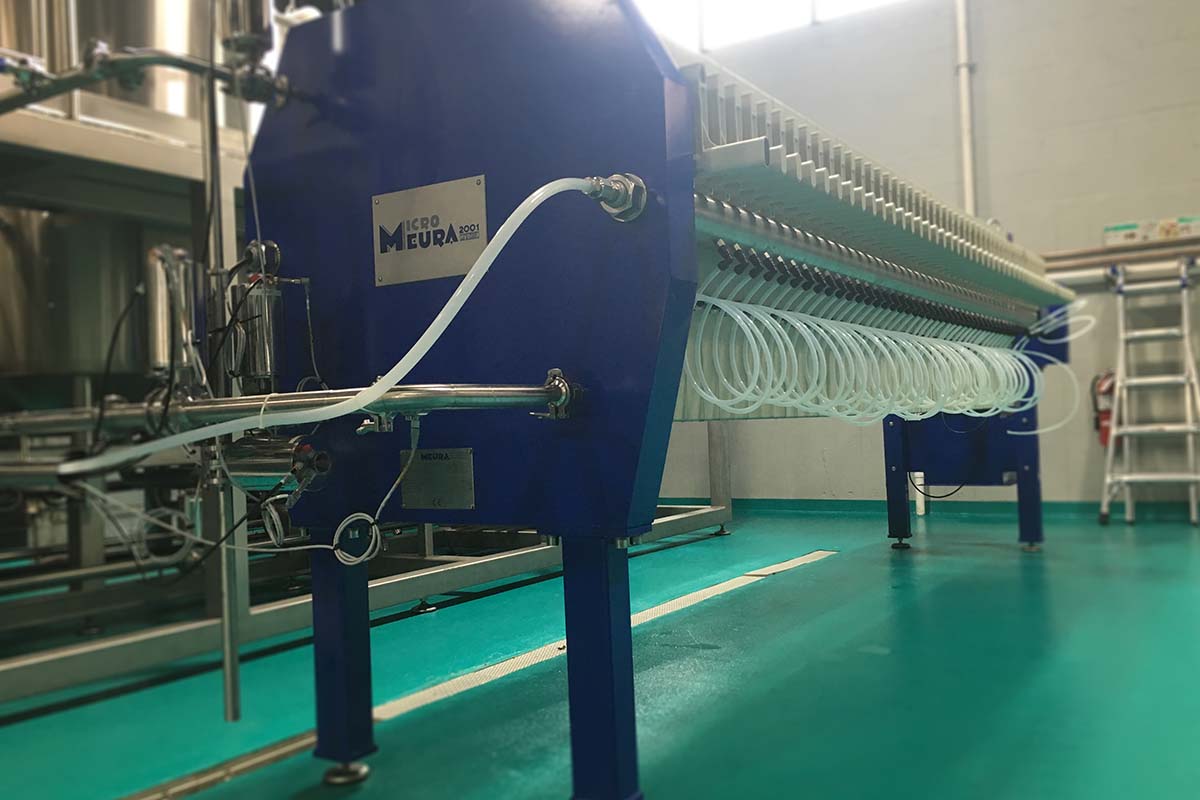
Mash Filtration
It can take up to 10 gallons of water to brew a single gallon of beer. While some breweries average around a 4:1 ratio, there is still a gargantuan amount of water that is cooked off or dumped down the drain as waste.
The majority of breweries use a lautering tun to filter used malt out of beer prior to fermentation. These large, cylindrical vessels use a false bottom that essentially strains those spent grains out, but the organic material is still soaked with liquid. Some sustainability-minded breweries have replaced lauter tuns altogether, replacing them with mash filters — a horizontal machine made of plates and tubes that squeezes out grains using fine cloth filters.
Mash filters like the ones produced by MetChem or Aegir are common in very large brewers, but in recent years, smaller models have been made for smaller producers like Los Angeles’ Brouwerij West and Tennessee Brew Works, allowing them to get up to 98% efficiency from their batches.
Beyond the sustainability aspect, mash filters also open up creative new avenues for the breweries that invest. Mash filters can process a wider variety of grains in the malt, introducing new flavors without gumming up the brewhouse. Modist Brewing in Minneapolis has a New England IPA called Dreamyard that’s made with 100% oats and wheat, giving it a silky, soft body that can’t be accomplished with barely and lautering.
Thiolized Yeast
In the past two years, the word “thiol” has buzzed around the brewing industry. Brewers have worked closely with microbiologists to develop yeast strains that maximize the presence of these highly aromatic compounds, giving their beers souped-up passionfruit, gooseberry and guava flavors.
Thiols are present in very low levels in hops and even malt, but Chicago-based yeast lab Omega Yeast has bioengineered strains to unlock much higher yields of thiols from these ingredients during fermentation. Their Helio Gazer, Cosmic Punch and Star Party strains are modified to activate and preserve thiols. The result is a hugely intoxicating scent that leaps out of the can without any dry-hopping.
“I know that hops are all the rage now, but it becomes untenable,” says Shana Solarte, technical writer at Omega. “Using the thiolized yeast is gonna give you a lot more flavor that you wouldn’t have expected otherwise. And you’re not competing with super rich malt flavor.”
Anchorage Brewing’s Thiolized, Künstler Brewing’s Hawaiian Fog and Badlands Brewing’s Phanta are exemplars of how thiolized yeast can drive hazy IPAs over the edge, but you’re now starting to see more West Coast IPAs, pilsners and ales enter the market, showcasing what an X-factor these aromatics can be in any context.
Vacuum Separation
If you’ve wondered why there’s been a sudden explosion in high-quality nonalcoholic beer, it’s because of the proliferation of vacuum separation.
Traditionally, breweries would brew full-strength beer and then cook off the alcohol or crash cool it to make the booze separate out. Sometimes, N/A beer is made by halting fermentation altogether. In all three cases, the beer is worse for the process, tasting wholly unfamiliar to full-strength beer. Vacuum separators, like the one created by ABV Technology, use a multi-stage vacuum process to separate alcohol from beer, resulting in N/A beer that suffers from none of the sour, skunky flavors that O’Douls is known for.
“The traditional methods of making non-alcoholic beer, going back a couple of hundred years. even, result in a product that most people don’t prefer,” ABV Technology CEO Ben Jordan told Good Beer Hunting in 2021. “‘Non-alcoholic beer sucks’ is kind of the impetus for our company.”
“We’re very gentle,” ABV co-founder Patrick Frimat says. “At any step in the process, we’re never shearing the beer of molecules.”
ABV launched their Equalizer in 2018, and since then, several other companies have released their own dealcoholization machines. Vacuum separators are extremely expensive pieces of equipment, but contract brewers like Minneapolis’s Fulton Brewing and Wisconsin’s Octopi Brewing have purchased in their own machines, making craft-quality zero-ABV beer accessible to a larger range of breweries than ever in history.
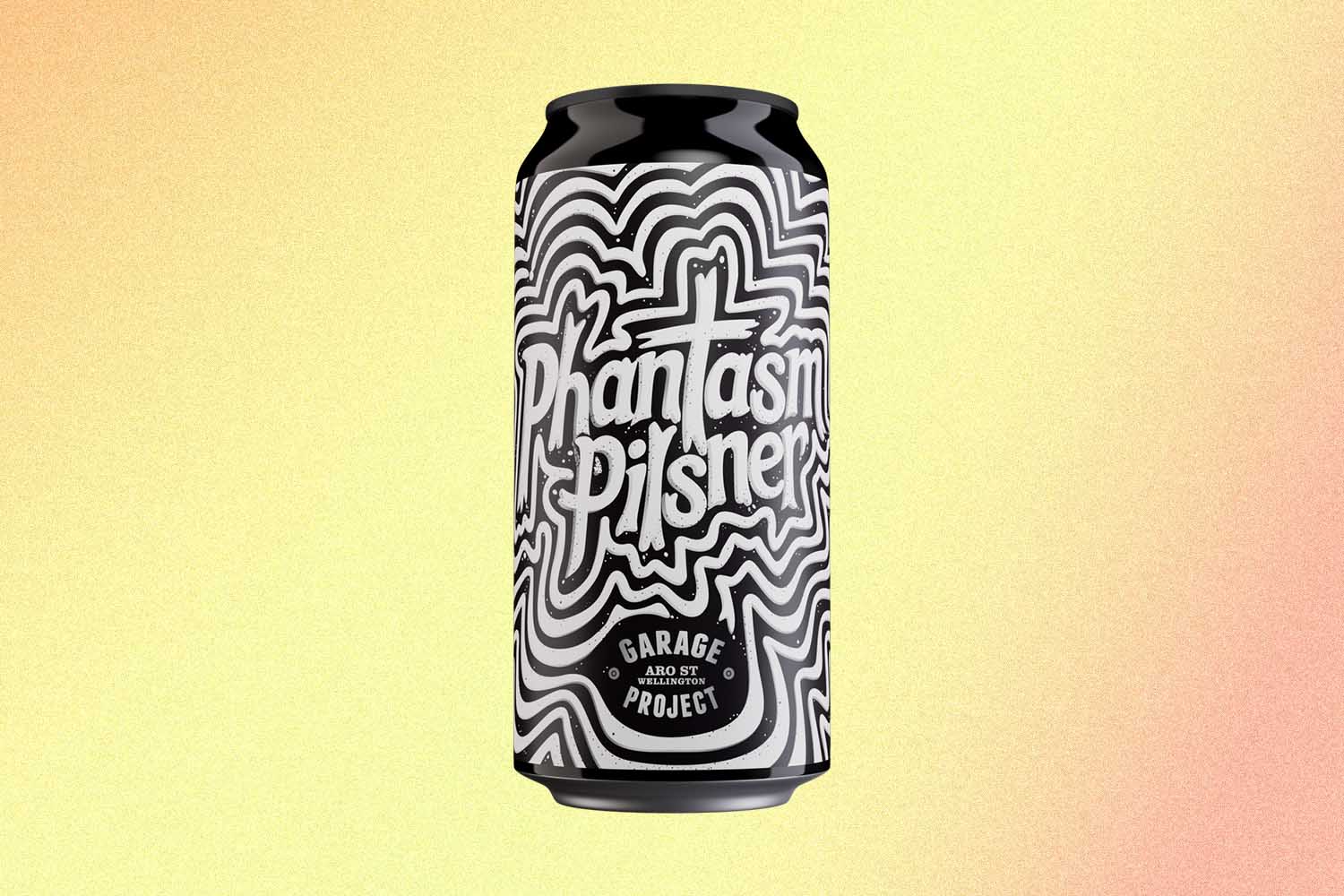
Phantasm
New Zealand brewers have been aware of thiols for a long time, thanks to their proximity to the nation’s bustling wine industry. It was in the Sauvignon Blanc production that Garage Project Brewing owner Jos Ruffell found the key to unlocking thiols in beer.
By processing grape skins into a powder, Ruffell created an ingredient that can be added to any beer to crank up the aromatics. He called his invention Phantasm for the preternatural tropical flavors it imparted on the first beers he tested it on.
“There’s just such an increased tropical aroma,” Ruffell says. “It’s got a depth to it, you might even say it’s hard to put your finger on. But you get something quite magical.”
Phantasm has stolen the hearts of America’s IPA heavyweights, with breweries like The Veil, Other Half and WeldWerks Brewing turning out hazy IPAs that just bloom out of the can. Phantasm has become an X factor that elevates these beers above the run-of-the-mill juice bombs that dominate shelves and taplines. But its application in lagers and sour ales is still being tested, so before long, Phantasm will be lurking in every corner of the beer industry.
Every Thursday, our resident experts see to it that you’re up to date on the latest from the world of drinks. Trend reports, bottle reviews, cocktail recipes and more. Sign up for THE SPILL now.
